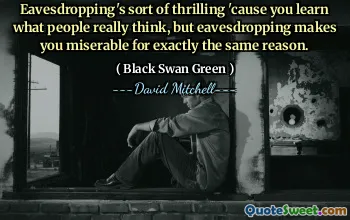
Probably is a word with an emergency ejector seat.
This quote highlights the inherent uncertainty and contingency that often accompanies human decision-making and judgments. The word "probably" acts as a linguistic safety valve, allowing us to hedge our bets and acknowledge the limits of our knowledge. It reminds us that certainty is rare, and that many of our assertions are provisional, subject to change as new information emerges. Such language is both practical and cautious, offering a transient sense of security while simultaneously acknowledging the fallibility of our understanding. In many situations, especially those involving complex problems or unpredictable human behaviors, resorting to "probably" allows individuals to navigate uncertainty without being overly committed to definitive but potentially flawed conclusions.
The imagery of an "emergency ejector seat" adds a layer of humor and urgency—suggesting that when we rely on "probably," we're perhaps just one misjudgment away from having to get out quickly, to retreat or rethink a decision. It speaks to the ever-present possibility that our assumptions might falter and that uncertainty can prompt immediate action or reconsideration.
Overall, the quote encourages humility in our convictions. Instead of clinging dogmatically to what we believe, it advocates for acknowledging the tentative nature of most things in life. Whether we're making decisions in personal relationships, scientific endeavors, or business strategies, recognizing the limits of certainty can help us stay adaptable and open-minded. Embracing uncertainty as an integral part of our thinking enables deeper reflection and resilience, rather than unnecessary confidence that may lead to failure or disappointment.











